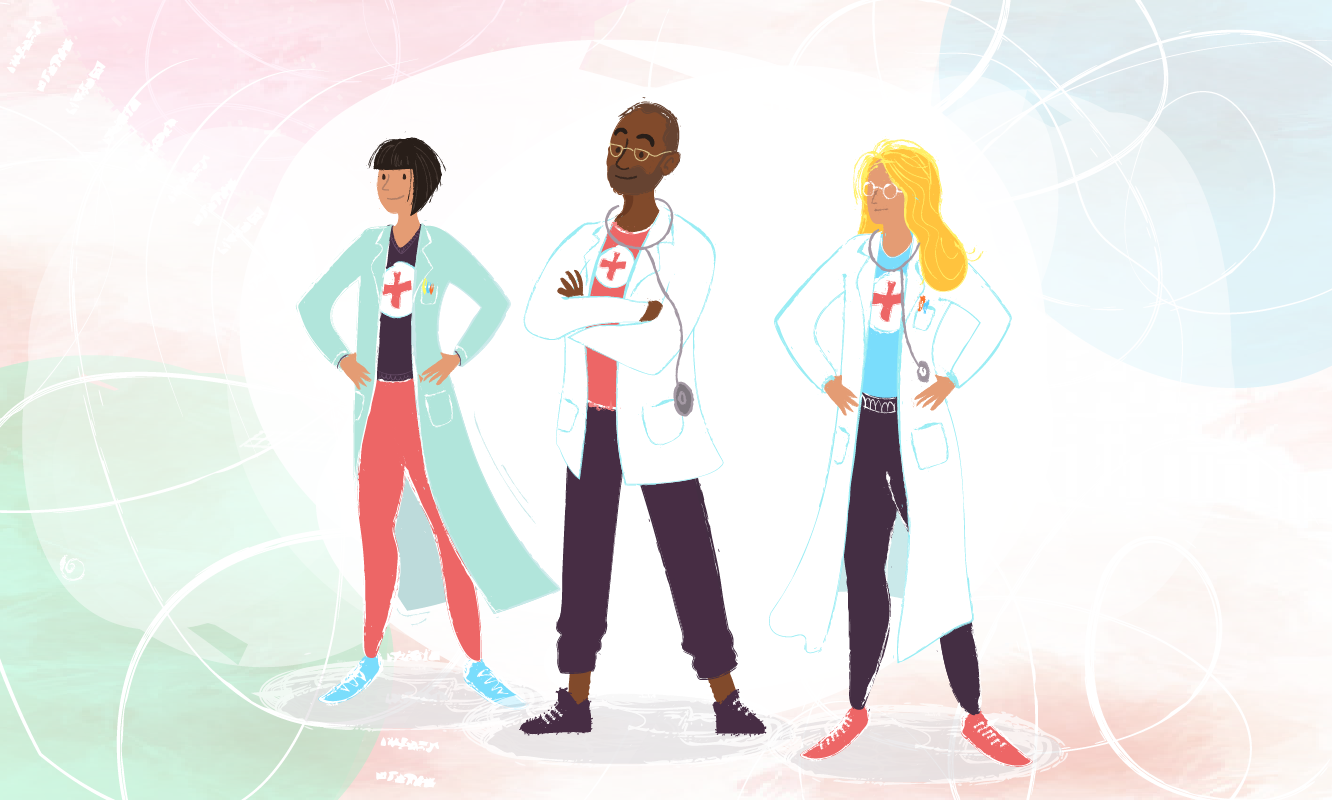Start improving with Life QI today
Full access to all Life QI features and a support team excited to help you. Quality improvement has never been easier.

Organisation already using Life QI?
Sign-up

Most healthcare professionals are experiencing unprecedented levels of pressure and ever-changing challenges as a result of responding to the coronavirus pandemic.
Even during these incredibly difficult circumstances we have seen fantastic examples of collaboration, staff involvement, innovation and rapid learning. Whilst this is a time when staff wellbeing is stretched, it is also a time that has provided much to celebrate. Despite the high-pressure conditions under which healthcare staff are operating, the improvement mindset and practices remain intrinsic to how a lot of staff go about their work.
Through our wide-reaching position as an improvement enabler we have seen first-hand exemplar projects created and executed in response to the pandemic. So, with their permission we are thrilled to be able to share what is just a handful of the initiatives that healthcare staff have been working on and in doing so highlight the broad themes of Covid focused improvement work we are seeing across the Life QI community.
First up, we start with two examples in the UK from the early stages of the pandemic looking at improving early diagnosis of Covid for service users and maximising the experience of care for patients and families.
East London NHS Foundation Trust’s (ELFT) set out to improve the speed and accuracy of Covid-19 testing. They optimised the use of rooms on the ward and implemented a standard operating procedure to test all service users on admission with DNAnudge and an efficient IT system to track the testing results. Learn more and review the results here, and read more about ELFT's Covid and QI work here.
Barts Health NHS Trust aimed to deliver the best possible patient and family experience during the Covid-19 restrictions by improving patient comfort and information sharing between patients and their families. On each of their four clinical sites they set up a family contact centre.
At Newham University Hospital the families can call or email with enquiries; these families receive a response from either the family contact centre staff (comprising of nurses, family liaison staff and office managers) or a clinician caring for the patient. The contact centre staff are also able to make calls to nominated loved ones on request from the ward staff and assist with video calls to families where patients are unable to do these themselves. In many cases there is daily contact. Feedback from patients and families has been universally positive and staff have also commented on how rewarding, if challenging, this work has been ...
“It’s making me more empathetic and stronger as a person. I find it rewarding but stressful at times managing people’s expectations”.
Scheduling, staffing and safety are a few of the top challenges being addressed by many organisations. Responses have often focused on communication and included daily meetings between team members and new methods for sharing and distribution of work so staff felt less pressure whilst on duty. New rotas have been used to provide distance between nurses so they don't overlap teams, thus reducing the likelihood of coronavirus spreading between staff and minimising staff sickness at a crucial time.
Other organisations have managed to re-organise work to replace staff who needed to be in quarantine. Improvements here have tended to focus on communication and training. After testing training ideas on a reference group one hospital nominated a person per ward to be responsible for the staff redeployed to their ward. They set up weekly meetings to secure communication from the ‘old’ ward team and provide mental health support to the ‘new’ ward team.
Hamad Medical Corporation (HMC) in Qatar assessed the psychological needs of healthcare workers directly engaged with the treatment of patients with Covid-19 on a daily basis. They pointed out the different factors that can cause stress such as increase in workload, new work environment, fear of getting infected or lack of infection control.
They reduced the level of stress by optimising workload and testing periodically and as a result improved staff wellbeing led to an increase in productivity which in turn had a positive impact on the quality of care.
Dr Somia Elfaki from HMC said, "During the COVID-19 pandemic so many innovative ideas blossomed from the front liners. Life QI system helped greatly during the pandemic to capture these ideas small or big form everywhere across HMC".
All of these improvement projects have highlighted that reducing stress can enhance the psychological wellbeing of the staff, keep them focused and productive, and contribute to spreading positivity among other colleagues, even in these difficult times. Whilst this is certainly a challenge at the moment, these examples can serve as inspiration for others.
Knowing that the pandemic was going to outlast the initial wave in Spring 2020 we have seen organisations onboard the learning from the first wave of Covid-19 in order to prepare for follow-up waves. Examples have included giving staff, patients, and the local population the opportunity to share their reflections and insights to help increase the effectiveness of the pandemic management and align these requirements and needs with the existing initiatives. From this we have seen providers embed learning, improvement and innovation into the everyday working lives of all staff in a way not seen before. Improvement and innovation is now being seen less as an add-on task and more part of daily work.
Since the vaccination campaigns started in December 2020, the Royal Free London has given more than 11,000 people their first dose of the Covid-19 vaccine. This includes over 6,000 members of staff as well as staff from other trusts, care homes, patients over 80 and the clinically extremely vulnerable.
Their aim was to administer both Pfizer and Astra Zeneca vaccines at scale and in a safe and accessible way by setting up clinics across their three sites. To avoid long queues and reduce the risk of infection they introduced an electronic booking system which automatically books first and second doses; further PDSAs included testing the impact of pre-screening questions, measuring the effect of training staff to both consent and vaccinate rather than one or the other, and having daily briefs and debriefs to drive improvement.
In this unpredictable environment we have seen how healthcare organisations are effectively responding to the Covid-19 pandemic with extensive communication, collaboration and improvement, and where needed by restructuring their approach to care. It has been both heart-warming and inspiring to see healthcare professionals continue to strive to improve conditions despite pressures probably not experienced before in their lifetimes. It is testament to the dedication, resilience and strength of the people we are lucky enough to be cared for by.
Full access to all Life QI features and a support team excited to help you. Quality improvement has never been easier.

Organisation already using Life QI?
Sign-up